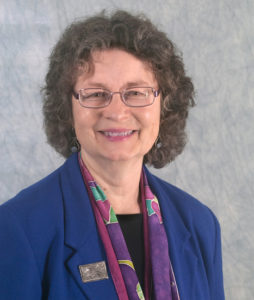Wish there were a space to regularly problem-solve with 5 or 6 of your nonprofit peers?
 September 15, 2020
Category: Column, Featured, Medium, Purpose
September 15, 2020
Category: Column, Featured, Medium, Purpose
Serving as the executive director of a nonprofit can be especially challenging because you have no peers within your organization. What do you do when you are faced with a difficult situation which is inappropriate to discuss with either your staff or your board?
Nonprofit Peer Circles can provide the opportunity for leaders to brainstorm with people in similar positions, to learn from their own and others’ experiences, and to immediately test and apply their learning at their nonprofits.
Connie Carter is one of the principals of Sylvia & Carter & Associates, a regional nonprofit consulting firm. A skilled facilitator, Carter has been leading Peer Learning Circles at the Chester County Community Foundation (CCCF) for several years.
According to the Foundation, Peer Learning Circles are groups composed of 5-9 peers in the same type of position, in non-competing nonprofits, who commit to self-directed problem solving. Members meet regularly to discuss current nonprofit concerns, share insights and experiences, support and question each other, and jointly problem-solve.
There are currently three circles: executive directors, development directors, and planned giving professionals, the memberships of which renew each year. Carter facilitates the first two groups. The most recent set of sessions was set to end this past June, but when the COVID-19 pandemic hit, the decision was made to extend them until the end of September.
“Sessions are now conducted by Zoom,“ Carter said. “Groups generally meet six times a year, from October through June, but this year the participants asked if we could both extend the session and increase the meeting frequency to monthly. The Circles provide them with a safe space to discuss their challenges, which in 2020 have included things like PPP funding applications, pivoting special events online, and how to deal with staffing issues for both essential and non-essential nonprofits during lockdown.“
When Carter starts a new Circle, she asks each participant to talk about who they are, and to list some topics they’d like to explore. Participants are asked to sign a confidentiality statement to keep all sharing within the group. Circles are carefully chosen to include a wide mix of participants of all ages and experience levels — some from small nonprofits, some from larger ones, some from social service nonprofits, and some from cultural organizations.
Many of the participants, especially in the Executive Director Circle, are either new to their roles, or are transitioning from a long career in the for-profit sector and are new to nonprofits.
“I think this type of group is especially beneficial for executive directors,” Carter said. “If they are doing their job correctly, they are not venting to either the staff they supervise or to the board members to whom they report. While the development director groups are often focused on more technical sharing (what software works best, how do you handle events, etc.) the executive directors tend to engage in more in-depth personal sharing. We explore how they are handling stress, how they are dealing with challenging employees, and how they are taking care of themselves.”
"There is a certain reality check that goes on that is only possible within this kind of safe space."
“The Circles can also provide a valuable, confidential forum to discuss how a nonprofit board should be functioning,” Carter added. “It can be really useful for a participant to describe a difficult board situation, and to have the rest of the group say, ‘no, that isn’t normal.’ There is a certain reality check that goes on that is only possible within this kind of safe space.”
A recent participant in an executive director peer circle described as “my favorite Friday mornings of the month. It’s an opportunity to problem solve in a safe confidential space with an amazing group of Chester County nonprofit professionals and honestly it’s also an opportunity for some me time, to relax with colleagues who become friends and for us all to support each other both personally and professionally.”
Carter has found that leading the Peer Circles has been personally rewarding for her as well. “I like knowing that in some small way I can play a role in strengthening the nonprofit sector in Chester County,” she said. “It takes a few sessions for the participants to build trust in each other, but when they do, the sharing and collaborative sprit between them is wonderful. When nonprofit professionals work together to learn from and with each other, the whole sector benefits.”
Karen Simmons, president and CEO of CCCF, said that the Community Foundation “deeply values peer learning. We are honored that we can provide senior nonprofit executives a safe space to confidentially share their accomplishments, best practices, and explore pitfalls.”
If you are interested in joining the upcoming fall session for any of the three Peer Circles offered by the Chester County Community Foundation, you can find the application here: https://chescocf.org/receive/peer-learning-circles/. The deadline is September 16, 2020.
Trending News










